An Interview with Cecily Wolfe
 One of the most exciting parts about this blog series is the variety of authors I get to interview. In today’s spotlight is Cecily Wolfe. I knew when I read her short website bio—”I am a librarian and author living in the Midwest United States. I love cats, reading, and potato chips.”—that she and I would likely get along. And based on the answers to her questions, the next time I’m in her neck of the woods, I might call her up to meet for a bag of chips. Cecily is a multi-genre author (including YA, Christian historical romance, and contemporary family drama and romance) with many writing credits to her name: That Night, A Harvest of Stars, Cliff Walk Courtships Series, and Reckless Treasure among them. And her fans will be happy to know that her latest, The Competition, releases tomorrow! As usual, I am so grateful that a person as busy as Cecily took some time out of the day to answer a few of my questions.
One of the most exciting parts about this blog series is the variety of authors I get to interview. In today’s spotlight is Cecily Wolfe. I knew when I read her short website bio—”I am a librarian and author living in the Midwest United States. I love cats, reading, and potato chips.”—that she and I would likely get along. And based on the answers to her questions, the next time I’m in her neck of the woods, I might call her up to meet for a bag of chips. Cecily is a multi-genre author (including YA, Christian historical romance, and contemporary family drama and romance) with many writing credits to her name: That Night, A Harvest of Stars, Cliff Walk Courtships Series, and Reckless Treasure among them. And her fans will be happy to know that her latest, The Competition, releases tomorrow! As usual, I am so grateful that a person as busy as Cecily took some time out of the day to answer a few of my questions.
Christina: How does your career as a librarian lend itself to writing and the writing life? Do you feel that being a librarian adversely affects your writing in any way?
Cecily: Being a librarian not only means that I’m around books all, but that I’m around readers all day, too. I get to talk books with our patrons and my coworkers, and get a lot of information about reader interests and behaviors that I am sure filter into my writing on some level. It is definitely a benefit for a writer to have the opportunity to learn what readers want and need to such an immersive extent.
Christina: Tough topics don’t scare you: That Night features both drugs and depression and A Harvest of Stars has a character dealing with physical, sexual, and emotional abuse as well as neglect. Do you choose your topics, or do your topics choose you? Is there anything you won’t write about?
Cecily: The characters choose me, for the most part, but I am often influenced by situations and people close to me. I have a good friend who has lost several young people in her family to heroin overdoses, and after speaking to family and friends at their funerals, I began to write That Night. Kayla, who dies in chapter one, is loosely based on one of the teens in my friend’s family, who died after using just the one time at a party. The feelings, issues, and problems that came up after her death are reflected in the story, too. One of her friends got into a fight with a classmate during calling hours at the funeral home, and other students had major conflicts at school over the gossip surrounding this girl’s death. The stories the friends and family told me were awful, and while some readers have said that certain events in the book seem unrealistic, they are based on things that actually happened.
A Harvest of Stars started with Isaiah, one of the protagonists, coming to me in a daydream and his story, as well as his best friend Locklyn’s, unwound like a film behind my eyes over several months. It is horrific and beautiful at the same time, and I’ve had so many emails from readers who either are in or who have left abusive situations who could relate to Lock’s story. I am working on the sequel, Starlight, now—and for the first time, doing forensic research. That’s all I will say about that . . . except AHOS readers can expect, to some extent, answers and some closure. That doesn’t happen in all of my books (see Reckless Treasure, my most controversial book—readers either love it or hate it, and as far as the ending, most see it as unhappy, but others, not so much, and those people really want a happy ending).
No, I’m not afraid to write about anything. If it comes to me, however it does, that means there is a story that needs to be told, and I will tell it. I do have a lighter teen title coming out next year called The Library War (definitely influenced by my work environment!) that will not deal with anything heavy. My other 2019 book, American Girls, will have a lot of fun parts but also deal with something serious, and is women’s fiction I am writing my with sister that is semi-autobiographical.
Christina: You were born and raised in Ohio, but several of your books take place elsewhere. What do you consider when choosing a setting for your book? What stands out as most important?
Cecily: That Night and The Competition are set in Ohio because that is where the events that inspired them took place, and Reckless Treasure doesn’t have a specific setting. A Harvest of Stars is in southeast Kentucky, where the poorest in the state live, and that just unraveled as the story came to me. As far as my Cliff Walk Courtships series goes, I adore Newport, Rhode Island and am fascinated with the Gilded Age in American history. I studied English in college and American literature quite a bit, so the stories from Henry James and Edith Wharton about rich New York families building mansion and spending summers on the Newport beaches were compelling. I always knew I wanted to write a story set during that time and in that town, but the story itself didn’t come to me until I was in the midst of a divorce, and I guess there was a part of me that needed to tell a story about a couple with differences and how they overcame them. Arthur came to me first, like a comforting daydream, and it went from there. I adore Arthur and wish he was real—many readers have told me the same, and just as many (if not more) have written to tell me of their love for Will, the young man in book two (Crown of Beauty) of this series. One teen reader said: “My favorite parts of COB are Will Will and WILL.” That made me really happy.
Christina: Your website states that your “stories, always character driven and focused on emotional experiences, depict realistic relationships and behavior.” Where do you draw most of your inspiration from?
Cecily: Each story has a different influence, as I’ve noted earlier, so sometimes it is a real life situation or person who begins the process, and at other times, it is just my daydreaming or real dreaming that gets it going. I woke up this morning with a hazy memory of a dream that was a little unnerving (a man with long hair stood in a corner of a room and I was asking him a question—not sure what it was—and he just stared at me). That might get me thinking about a story, especially if that man stays in my head and more about him comes to me. I always talk about these sort of things like they aren’t a big deal (people in my head talking to me or revealing information to me) but I know it sounds a little strange. It’s really is just daydreaming, and letting my thoughts go with it.
Christina: You are very prolific, and I have to wonder, do you find anything difficult about the artistic process. If so, what? And what do you do to combat any difficulties you might encounter?
Cecily: I usually work on more than one book or short story at a time, so if I just get worn out working on one I can move on to the other. My biggest challenge is time. I work full-time and am a single parent, and my girls and I like to drive around Northeast Ohio and just enjoy the local events and places. I might write 200 words one day, and then on a weekend morning when everyone else is asleep and I have characters screaming to get out of my head, 5000. I definitely have set deadlines for each part of the writing process for myself, and I read a lot as well for pleasure. I have always loved reading and it is the best way for me to recharge and relax. I find I can return to my own work renewed and excited after I’ve spent time in another writer’s world.
Christina: Your characters must speak with you, considering your Amazon biography states that you write what the characters tell you to write (to paraphrase). What is the most unexpected thing a character has asked you to do?
Cecily: Someone dies in one of my books (well, more than one, but this one in particular was a deliberate killing) and the method was originally not what is in the finished book. The character who does it had a different idea, and I could see it in my head but honestly, it ended up messy enough without his preferred method. I still think about it sometimes, especially as I write more of the story line, and I know that even though he is happy to have been able to kill this other character (it wasn’t planned, it happened in the story in the heat of the moment) I kind of sense that he wishes I would have let him do it his way. Logistically speaking, I don’t think I could have without it being more contrived or awkward, and he knows that, but . . . that all sounds really weird, doesn’t it?
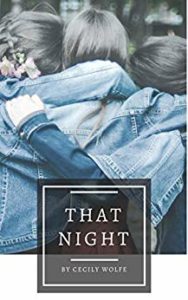
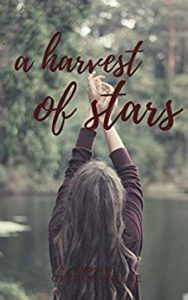
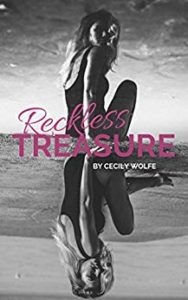
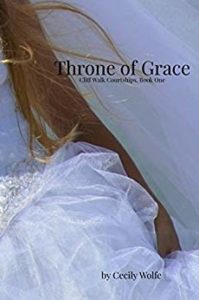
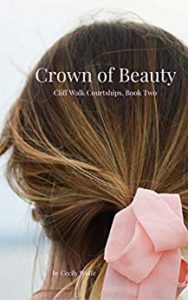
Thanks to Cecily for agreeing to this interview! If you know of an author who’d like to be featured in an interview (or you are an author who would like to be featured), feel free to leave a comment or email me via my contact page.
